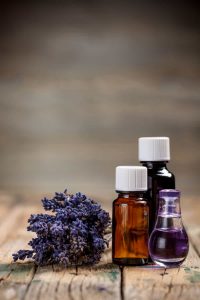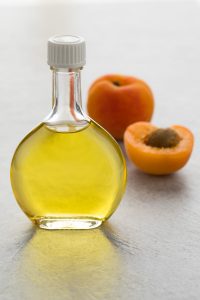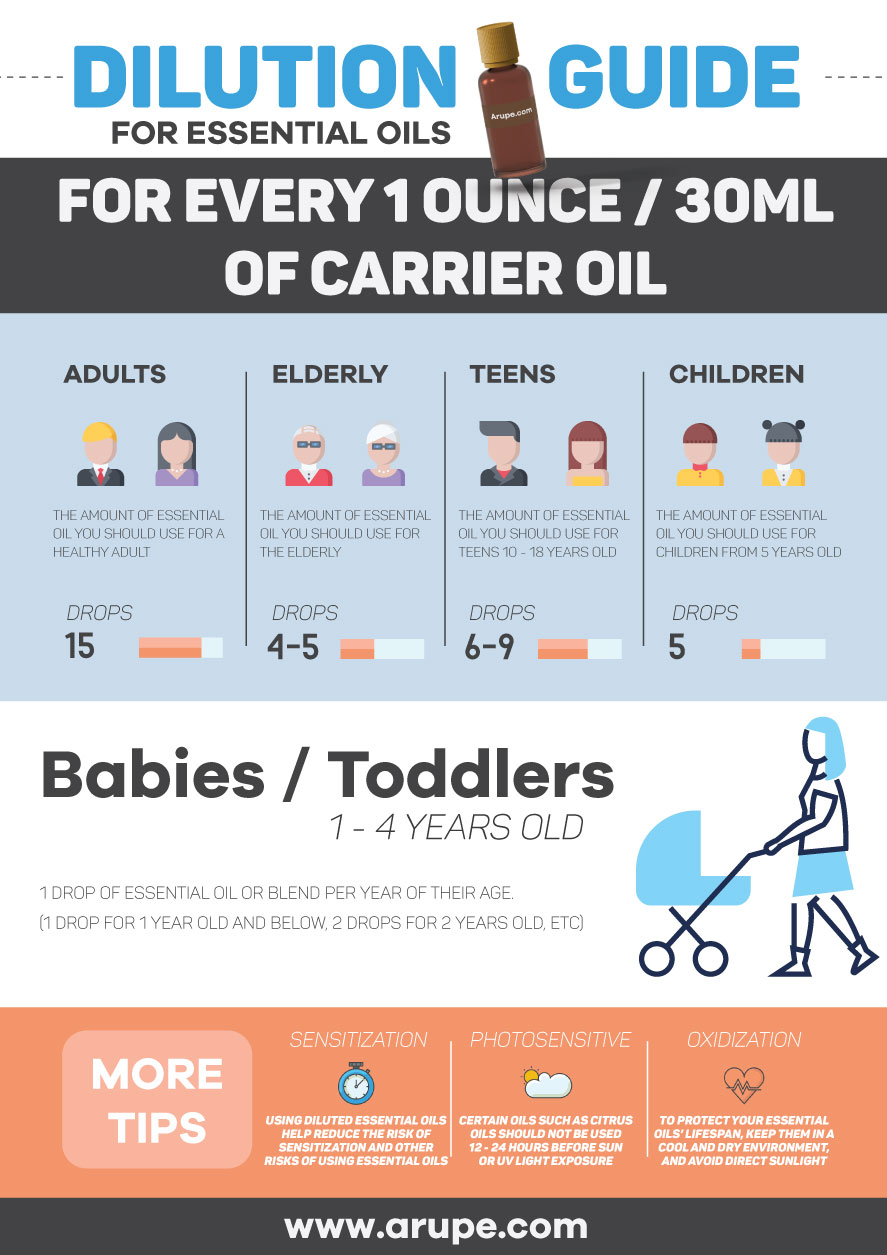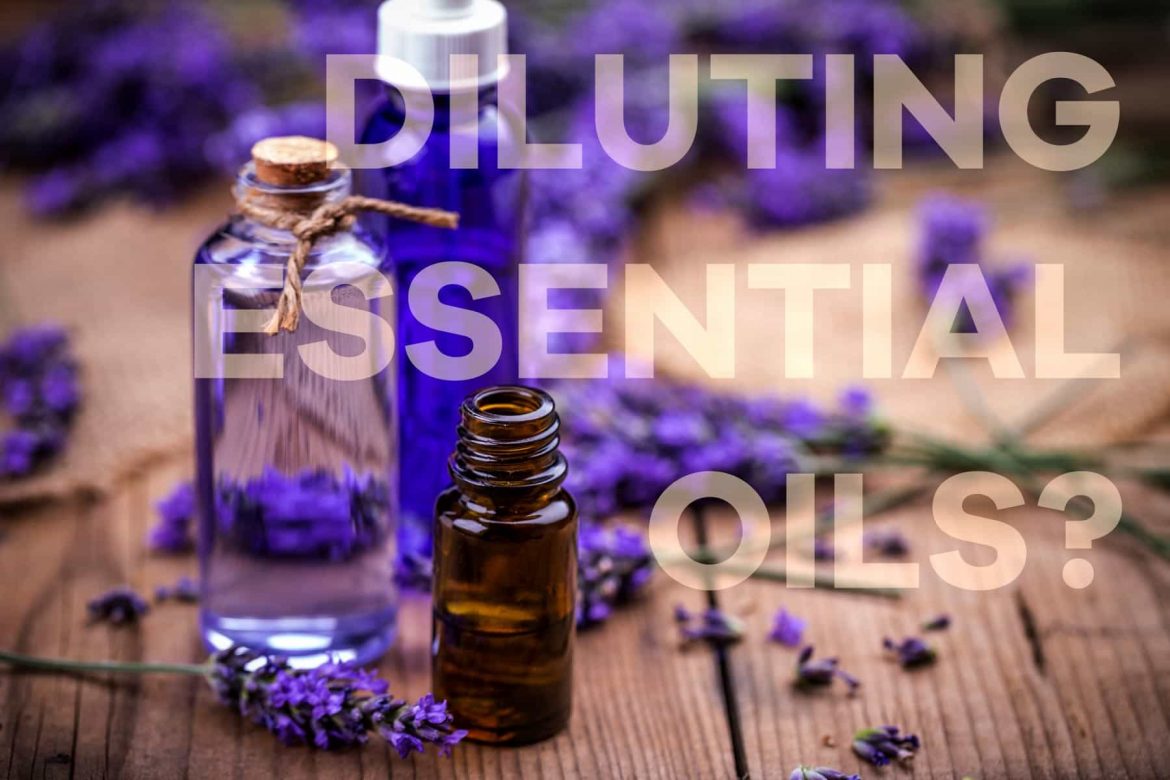 Facts vs Myths
Facts vs Myths
There are lots and lots of people that assume essential oils are safe to be used liberally, without any dilution, because it comes from a natural source. If you are using essential oils this way, please stop doing so immediately. With the exception of very few oils, essential oils should never be used neat when applying on skin.
Pure essential oils are very potent because of its concentration, and should be treated with care and respect.
We know that essential oils are extracted from plants, herbs, seeds and so on. Certain oils such as lavender and tea tree are gentle to be applied neat to the skin, but essential oils in generally must be diluted prior to topical application (applying on skin), due to being high in concentration.
What Happens if I Don’t Dilute Essential Oils
Failure to dilute essential oils prior to application on skin can be very dangerous. Skin reactions could occur such as:
 Skin irritation
Skin irritation
By diluting essential oils, you greatly lower the risk of skin irritation and reduce the risk using essential oils. As a rule of thumb, you should dilute all essential oils before using. But more importantly, certain essential oils, especially high dermal irritation oils require high moderation in use. These tend to be oils from herbs and spices such as thyme, sage, oregano, parsley, clove, bay laurel, cinnamon, clove, fennel, fir needle, spruce and more.
Redness and inflammation
When your skin starts becoming red or inflamed, this is a sign that the essential oils may not be suitable for your skin. Apply more carrier oil to further dilute the oil on the skin, and wash the area with soap and water.
Rashes, itching, burning
Same as above. Your skin is not reacting well the the oil. Follow the same procedures, and visit consult a doctor or medical professional if the condition gets worse.
Sensitization
Everyone can be prone to sensitization, and it can happen anytime, even years later. Even if you do not develop immediate symptoms after using undiluted essential oils on your skin, you are running the risk of sensitization, where your body starts to react to the oil over time. This usually happens when using undiluted essential oils for an extended period of time. It is very important to practice safe dilution of your essential oils because sensitization could last for a long time, and your body could permanently develop a reaction to the oil you are sensitized to. This means you may no longer be able to use your favourite essential oils for the rest of your life!
Which oils are safe to be used undiluted?
It is known that lavender and tea tree oil are generally the 2 safest oils that can be applied undiluted on the skin. With that being said, dilution of these oils is still a good practice, in order to minimize the risk of a serious skin reaction from the unintentional application of oxidized oils, or sensitization over a period of time.
It is known that lavender and tea tree oil are generally the 2 safest oils that can be applied undiluted on the skin.

What carrier oils should I use?
There are many kinds of carrier oils that available. Herbal oils also function similarly to carrier oils, but are usually more expensive. Some carrier oils have additional therapeutic properties that are great for certain ailments. Some carrier oils are very aromatic on its own, and some have little to no aroma, which is great for showcasing your essential oil blend.
Common carrier oils people use for general wellbeing are coconut oil, apricot kernel oil, almond oil and jojoba oil.
For a list of the best carrier oils and their benefits, be sure to check out my article, What is the Best Carrier Oil for Essential Oils.
Dilution Guide
A healthy adult typically should use essential oils with a 2-3% dilution, depending on the usage.
For lotions, skincare products and general wellbeing, a 2% dilution is what most should be practicing using.
For application for a specific ailment, you can increase the percentage to 3%. For instance, treating congestion, muscle soreness and abdominal pain.
Children’s and elderly’s skin are very different from adults. They have a significantly higher risk of getting skin reactions and getting damaged, and are more sensitive in general. They require further dilution to the essential oils before application.
Here is a quick reference guide you should follow:

Adults
15 drops of essential oil or blend per 1 ounce / 30 ml of carrier oil.
Elderly
4 to 5 drops of essential oil or blend per 1 ounce / 30 ml of carrier oil.
Early Teens (10-14 years old)
6 to 7 drops of essential oil or blend per 1 ounce / 30 ml of carrier oil.
Late Teens (15-18 years old)
8 to 9 drops of essential oil or blend per 1 ounce / 30 ml of carrier oil.
Age 5 to 10
5 drops of essential oil or blend per 1 ounce / 30 ml of carrier oil.
Ages 1 to 4
1 drop of essential oil or blend per 1 ounce / 30 ml carrier oil per year of their age.
(1 drop for 1 year old and below, 2 drops for 2 years old, etc)
Conversion Guide
1 drop of essential oil = 0.05ml
1ml = 20 drops of essential oil
1 tsp = 5ml
1 tbsp = 3 tsp
Carrier / Alternative Oils to Avoid
Heavily Processed Oils
Some oils in the market have been processed heavily to remove as much color and aroma as they can. They are also created to be long lasting on your shelf, and less susceptible to going rancid for a longer time. Heavily processed oils have most of their nutrients stripped, and provides very little value to you because of the lack of therapeutic benefits. It is better to choose natural carrier oils as they still contain their nutrients, and give you greater therapeutic benefits when used with your essential oils.
Mineral / Baby Oils
Mineral and baby oils are actually distilled products from petroleum. They are usually transparent and colorless, and have been commercially marketed as a product that can soothe the skin. However, these oils do not provide any supportive benefit to your skin and overall health. They do not have any nutrients whatsoever, and some oils will clog your pores when applied onto your skin. Mineral oils and baby oils are not capable of assisting the absorption of essential oils as much as natural carrier oils.
Water or Pure Water-based Product
Water and essential oils do not mix together well on their own. This is something we commonly observe in our daily lives. Whenever you see a layer of oil that always floats on top of water, it will never mix well no matter how much we stir it. This does not mean we can’t use water-based products. We have to add either emulsifiers or dispersants, depending if it is for topical use or as room-spray mist, so that the oils and water-based product are able to stay suspended, and not separate from each other. If you were to mix your essential oils and your water-based product without any emulsifier, not only will you have an end product that is not a well-mixed suspension, you also run the risk of exposing yourself to undiluted essential oils.

